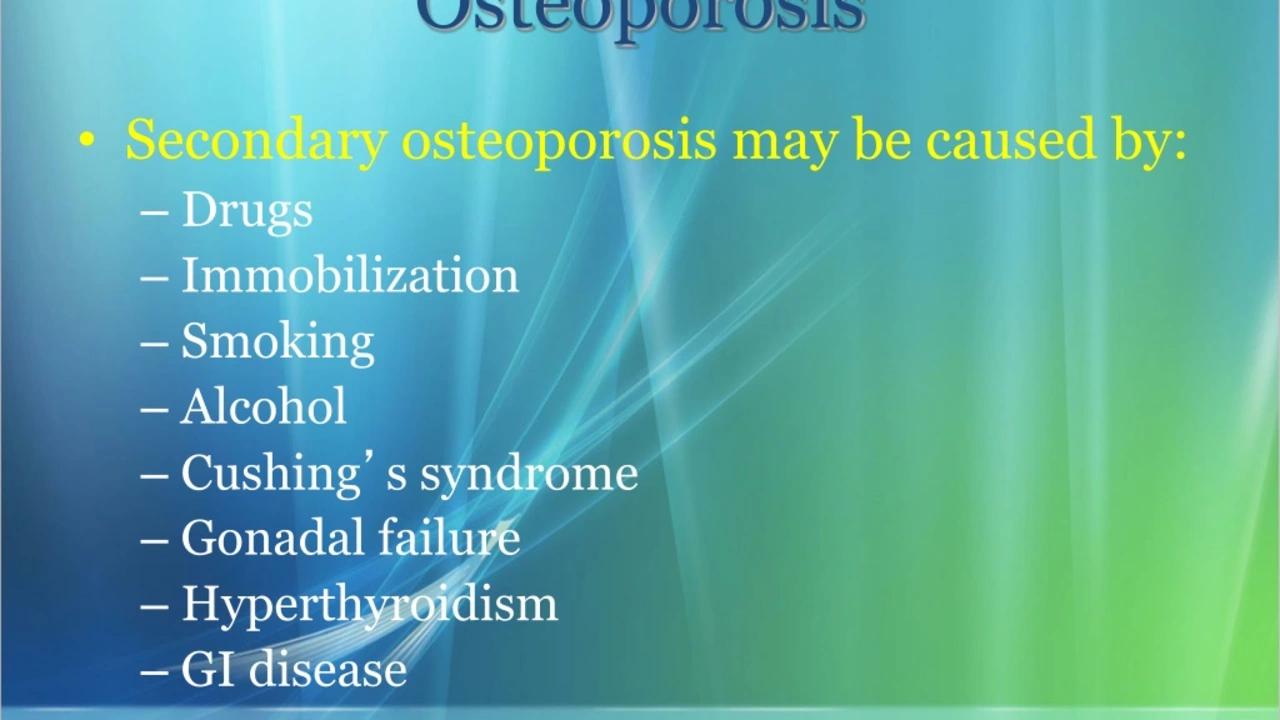
Understanding Osteoporosis
Osteoporosis, a bone disease that occurs when the body loses too much bone, makes too little bone, or both, is a health concern that affects millions of people globally. The condition results in bones becoming weak and brittle - so brittle that even mild stresses like bending over or coughing can cause a fracture. Since it is a 'silent disease', most people are unaware they have osteoporosis until a fracture occurs. The disease is more common in women, but men can also be affected.
Osteoporosis is often preventable. Regular exercise, a diet rich in calcium and Vitamin D, and a healthy lifestyle free from smoking and excessive alcohol consumption can significantly reduce the risk of developing this disease. However, if these guidelines are not followed, one's risk can significantly increase. This article will explore the connection between osteoporosis, smoking and alcohol consumption.
The Impact of Smoking on Osteoporosis Risk
Smoking has a direct impact on bone health. It is well established that smoking can lead to a decrease in bone density, increasing the risk of osteoporosis. Cigarette smoke generates huge amounts of free radicals - molecules that attack the body's natural defenses. This leads to a chain reaction of damage throughout the body - including the bones.
Nicotine and other harmful chemicals in tobacco interfere with the function of osteoblasts, the body's bone-making cells. This results in a decrease in bone mass and, consequently, weaker bones that are more susceptible to fractures. Additionally, studies show that smoking impacts the balance of hormones in the body, including estrogen, which protects bones. Smokers often produce less estrogen and tend to go through menopause earlier, further increasing the risk of osteoporosis.
Alcohol's Influence on Osteoporosis Development
Alcohol consumption can also significantly affect bone health. Moderate consumption does not appear to significantly increase the risk of osteoporosis. However, those who consume alcohol excessively often have poor nutrition, which can negatively impact bone health.
Alcohol interferes with the balance of calcium, an essential nutrient for healthy bones. It also disrupts the production of vitamin D, a vitamin crucial for calcium absorption. Furthermore, excessive alcohol damages the liver, which negatively affects bone health. Chronic heavy drinking, particularly during adolescence and young adulthood, can dramatically affect bone health and increase the risk of osteoporosis.
Smoking and Alcohol: A Dangerous Combination
Both smoking and excessive alcohol consumption are detrimental to bone health, but when combined, the effects can be even more harmful. The combined effect of smoking and heavy alcohol use can result in a significantly increased risk of osteoporosis compared to either factor alone. This combination can lead to serious health consequences, including an increased risk of fractures.
While quitting smoking and limiting alcohol consumption can be challenging, it is essential for maintaining bone health. It's never too late to quit smoking and start making healthier choices. Even if you've already developed osteoporosis, quitting smoking and reducing alcohol consumption can slow the progression of the disease.
Prevention is Key
Preventing osteoporosis is largely within our control. A diet rich in calcium and vitamin D, regular weight-bearing exercise, and a lifestyle free from excessive alcohol and tobacco use can significantly reduce the risk of developing this disease.
It's important to maintain a healthy weight and avoid undernutrition, as both of these can also increase your risk. Regular check-ups and bone density tests can help detect early signs of osteoporosis and allow for early intervention.
Conclusion: Take Control of Your Bone Health
While osteoporosis is a serious and common health condition, it's not an inevitable part of aging. By understanding the risks and taking steps to reduce them, you can take control of your bone health. Quitting smoking, limiting alcohol consumption, maintaining a balanced diet, and staying active are all ways to keep your bones healthy and strong.
Remember, it's never too late to make healthy changes. Even small steps towards a healthier lifestyle can make a big difference in your bone health and overall well-being.